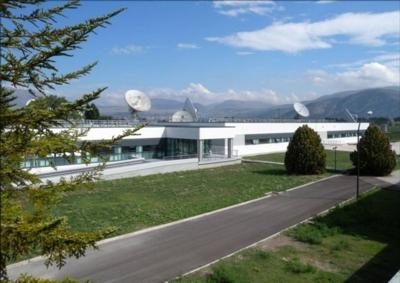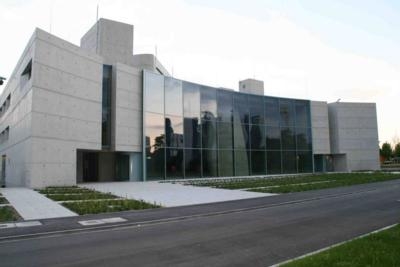Tue, Aug 22, 2017
Interlink Sites Between Centers Declared Approved For Use
Early in July the Inter-site links between the two Galileo Ground Control Centers in Oberpfaffenhofen (Germany) and Fucino (Italy) were declared fully functional and approved for use by the Galileo Security Accreditation Board. This major milestone within the Galileo Ground Control System (GCS) project means that all the received satellite telemetry data and the Key Management devices that secure the communication channel between the satellites and the ground the Galileo Ground Control Operations can now be fully shared between the two centers.

Approval of this link is an essential step in the program. It marks the transition to a fully redundant Control Centre solution, even in the event of an emergency or failure at one of the centers, there is now the capability to continuously control the Galileo constellation from the other.
Galileo is Europe’s own global satellite navigation system, providing positioning, navigation and timing services to Europe and the world. It currently comprises 18 operational in orbit satellites, eight more that are built but still to be launched (four of these on an Ariane 5 launch in December) and another eight now on order. The system has been providing Initial Services since December 2016, providing high accuracy navigation signals to anyone with a ‘Galileo-ready’ chipset.
The Galileo Ground Segment is one of the most complex Europe has ever undertaken, having to achieve strict levels of security and safety whilst continuously monitoring and controlling all the satellites in the Medium Earth Orbit (MEO) constellation. Many of the routine satellite contacts are now fully automated.

Airbus in Portsmouth has been the prime contractor for the Galileo Ground Control Segment (GCS) from its inception to the present day, with responsibility for the GCS facilities located at both Oberpfaffenhofen and Fucino and the six associated Telemetry, Tracking and Command (TTC) stations. GCS is responsible for the day-to-day monitoring and control of the four In-Orbit Verification (IOV) satellites and the 12 Full Orbit Constellation (FOC) satellites and is ready to control all the FOC satellites as they become available. For FOC, Airbus has introduced more modern capabilities, such as the use of Virtualisation techniques, to both allow a more efficient use of hardware and also to reduce the impact of obsolescence, by allowing the running of legacy Operating System software on upgraded servers. Looking beyond the current FOC contract, the Airbus GCS team is ready to introduce yet more innovative techniques to better support future operations of the current and next generation Galileo
satellites.
(Images provided with Airbus news release)
More News
He Attempted To Restart The Engine Three Times. On The Third Restart Attempt, He Noticed That Flames Were Coming Out From The Right Wing Near The Fuel Cap Analysis: The pilot repor>[...]
Make Sure You NEVER Miss A New Story From Aero-News Network Do you ever feel like you never see posts from a certain person or page on Facebook or Instagram? Here’s how you c>[...]
From 2009 (YouTube Edition): Leading Air Show Performers Give Their Best Advice for Newcomers On December 6th through December 9th, the Paris Las Vegas Hotel hosted over 1,500 air >[...]
Aero Linx: NASA ASRS ASRS captures confidential reports, analyzes the resulting aviation safety data, and disseminates vital information to the aviation community. The ASRS is an i>[...]
“For our inaugural Pylon Racing Seminar in Roswell, we were thrilled to certify 60 pilots across our six closed-course pylon race classes. Not only did this year’s PRS >[...]
 NTSB Final Report: Rutan Long-EZ
NTSB Final Report: Rutan Long-EZ ANN FAQ: Turn On Post Notifications
ANN FAQ: Turn On Post Notifications Classic Aero-TV: ICAS Perspectives - Advice for New Air Show Performers
Classic Aero-TV: ICAS Perspectives - Advice for New Air Show Performers ANN's Daily Aero-Linx (06.28.25)
ANN's Daily Aero-Linx (06.28.25) Aero-News: Quote of the Day (06.28.25)
Aero-News: Quote of the Day (06.28.25)




